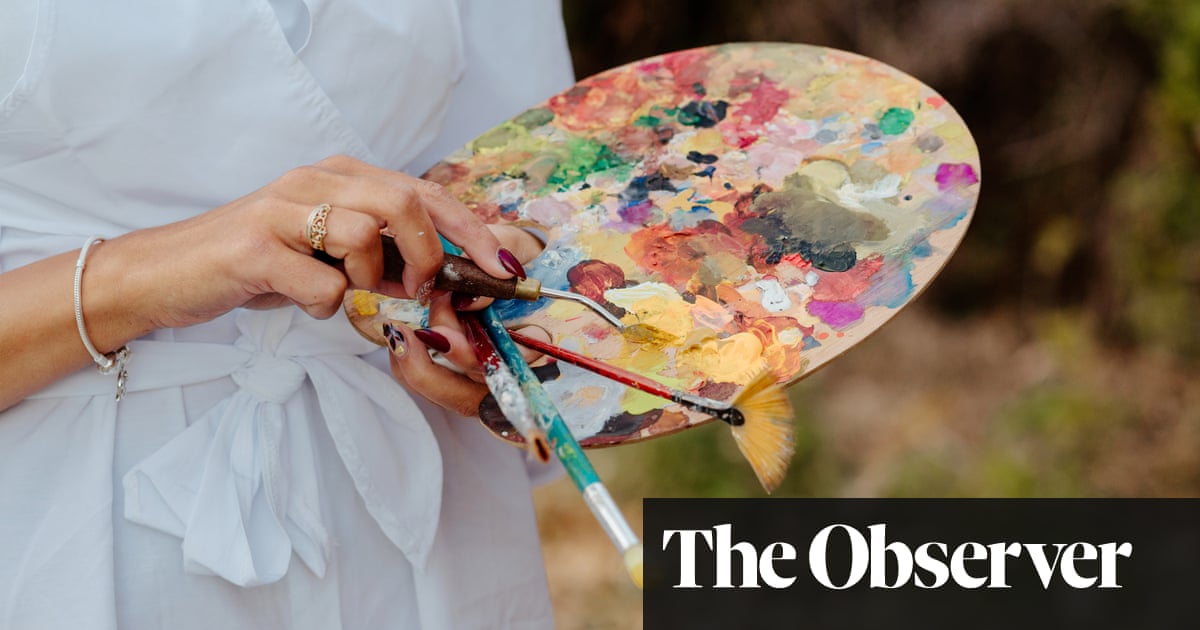
The dilemma Since childhood I’ve made only a very few friends. My parents are immigrants and we were brought up in a strict, religious environment. As a teenager, I wasn’t allowed to do a lot of the things other girls at school did. If I ever pushed the boundaries set up at home, I felt guilty, so I made my own entertainment and was good at that. My husband says I’m a kind and gentle person and he’s probably my only long-term friend. I find group situations exhausting. I know how I’m “supposed” to act, but it is an act and that’s why I find it so tiring. I feel awkward in company, and I don’t drink either so I don’t have that social crutch.
I love my creative job and I work from home, so I don’t have colleagues. I like my own company. When my children were little, I socialised a bit with other parents at the school gates, that was OK, but I didn’t love it.
I love pottering in my garden creating things, but I worry that my children don’t see me modelling adult friendships (they are unlike me and have nice friendship groups).
I do have someone I think of as my friend; we usually have a cup of coffee about twice a year. That feels fine because that’s all we expect from each other. I helped her recently and saw her more when she was in trouble and I liked helping her and now we’ve gone back to just texting as before, so that is a nice connection. I also regularly text with some relatives. I love my husband and I don’t feel like I’m pretending with him. He has colleagues and people he does sport with but, like me, he prefers being at home.
I have a sad realisation that being social is a part of life that I see other people having fun with that I don’t, but “should” be experiencing. I’m not lonely but when my children leave home I might be. I feel stuck.
Philippa’s answer You are yourself with your husband and with your children and what follows from that is that you are treasured and loved. But you feel the need to put on an act in a wider group. What if you were you all the time? Maybe you’d be quieter. Louder. Less “British”. Maybe you’d say, “I find socialising difficult.” And maybe that would be OK. It is time to experiment. A place to start would be group therapy. You could get to practise saying out loud exactly what is on your mind. You would experiment with being you instead of that act you currently feel the need of. Whether you do group therapy, individual therapy or no therapy at all, practise dropping the act anyway. Feeling you have to put on an act rather than just being yourself does sound exhausting.
You felt you couldn’t join in with your peers as your strict parents wouldn’t approve of what they got up to, so you made your own entertainment. Making your own entertainment is the number one skill for becoming a creative person. But this may have started the habit of you being on the outside of a group, observing rather than joining in, and it deprived you of the habit.
There are layers of friendship. The first layer is your intimate friends. On average we have 1.5 of these. They usually comprise a romantic partner and possibly a best friend. Women usually have a best friend and men often just have a romantic partner. The next layer usually comprises these intimates, plus about four more people and they are people you could call on, or would call on you, for support. The next layer, including those six, is 12 to 15 (you could call it the apostles). I don’t think it is an accident that sports teams are usually this number. The next layer up is 50, and comprises friends, relations, colleagues. The layer after that, famously known as “Dunbar’s number” is 140-150, you could think of it as your tribe. This group comprises the other groups, plus acquaintances and after that the number is 1,300-1,500. This is your friends, acquaintances, plus people you recognise (perhaps because they are famous), but don’t necessarily know.
I’m not worried about you because you can make good and sound relationships, you have them with your husband and children. I like that you don’t blame other people for feeling like you have to act. It sounds as though you do have an intimate friend and people you know in place, but you prefer texting to conversations, you like your own company and this is all fine. You helped a friend in trouble, which makes me feel that if you needed help, perhaps extra support when your children eventually leave home, you would have a friend to go to as well.
I think you have organised your life well to suit you. You sound like you love your work, your family and your life. You are wondering about the differences between you and the extroverts and whether you are missing out. I don’t think you are missing out. The only tweak I’d ask you to try is to experiment with being who you are instead of being who you think you ought to be, then you may discover that you can feel nourished by contact rather than just drained.
Suggested reading: Friends: Understanding the Power of Our Most Important Relationships by Robin Dunbar.
Every week Philippa Perry addresses a personal problem sent in by a reader. If you would like advice from Philippa, please send your problem to ask.philippa@observer.co.uk. Philippa regrets she cannot enter into personal correspondence. Submissions are subject to our terms and conditions.












